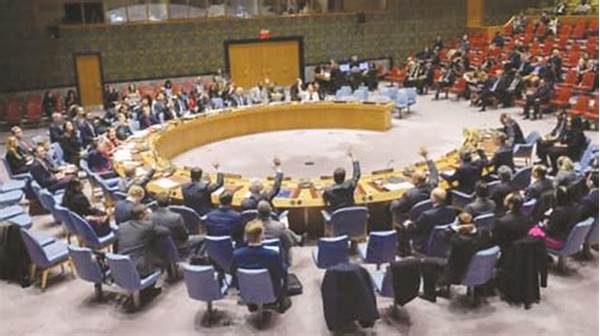International organizations play an integral part in the complex landscape of global conflicts. Their involvement often comprises efforts in conflict prevention, mediation, peacekeeping, and post-conflict reconstruction. These entities, armed with neutrality and a structured approach, leverage their expertise to mitigate tensions and foster sustainable peace. By understanding their function and influence, one can appreciate the delicate balance they maintain in the international theatre of politics and diplomacy.
The Role of International Organizations in Conflict Resolution
The role of international organizations in conflicts often revolves around conflict resolution efforts. These entities possess a unique advantage due to their global reach and legitimacy, enabling them to act as impartial mediators. They engage in dialogue and negotiation processes, seeking amicable solutions between conflicting parties. Through their involvement, they aim to establish frameworks for sustainable peace, demonstrating their pivotal role in maintaining international stability. Their capacity to mobilize resources and influence global opinion further underscores their effectiveness in such capacities. In essence, these organizations are invaluable in ensuring that peaceful resolutions are followed through comprehensively, alleviating the impact of conflicts on affected populations.
Mechanisms Employed by International Organizations
1. Mediation Efforts: The role of international organizations in conflicts often involves acting as neutral mediators to resolve disputes.
2. Peacekeeping Missions: Deploying peacekeeping forces is a strategy utilized to create stable environments conducive to peace.
3. Sanctions: International organizations may impose sanctions to pressure conflicting parties toward negotiation.
4. Resource Mobilization: These organizations gather financial and logistical support to aid conflict resolution.
5. Policy Development: Crafting frameworks and policies that guide conflict resolution initiatives highlights their critical functions in broader global governance.
Challenges Faced by International Organizations in Conflict Resolution
The role of international organizations in conflicts is not devoid of challenges. Political intricacies can impede their operations, particularly when powerful states possess conflicting interests. There are instances where resource constraints hinder their ability to implement comprehensive interventions. Additionally, the evolving nature of modern conflicts, characterized by non-state actors and asymmetric warfare, demands adaptability and innovation in approach. Nonetheless, by leveraging strategic partnerships and focusing on capacity building within conflict-afflicted regions, international organizations continue to strive towards effective governance. They remain pivotal in aligning conflicting interests with international norms, albeit with caution and strategic foresight.
Impact of International Organizations on Long-term Peace
The role of international organizations in conflicts extends beyond immediate resolutions to foster long-term peace. Their influence in conflict aftermath situations involves rebuilding socio-political infrastructures and fostering economic recovery. Through initiatives aimed at reconciliation and reintegration, they address root causes and prevent the resurgence of hostilities. Enhanced diplomatic ties facilitated by these organizations contribute to regional and global stability, minimizing the likelihood of renewed conflict. By embedding principles of democracy and human rights in post-conflict areas, they promote sustainable development. Consequently, their role is instrumental in transforming conflict scenarios into peaceful, thriving societies.
Influence of Global Policy and Governance
Global policy and governance heavily influence the role of international organizations in conflicts. Policies developed within these entities often set the agenda for conflict intervention and aid distribution. The principles they espouse—diplomacy, non-aggression, and cooperation—are woven into the fabric of international relations. By aligning national policies with international standards, these organizations ensure coherent responses to conflicts. Their engagement in multilateral dialogues paves the way for consensus-building and collaborative efforts among member states, enhancing the effectiveness of conflict interventions. This synergy between global policy and organizational action underscores the crucial role they play in maintaining international order.
Strategies for Enhanced Conflict Resolution
To enhance the role of international organizations in conflicts, adopting innovative strategies is imperative. Expanding partnerships with regional organizations can bolster their legitimacy and reach at local levels. Incorporating advanced technology and data analytics can improve conflict prediction and response. Furthermore, fostering inclusive dialogues that consider geopolitical and cultural nuances strengthens the legitimacy of interventions. Emphasizing capacity building and resilience in conflict-prone regions prepares communities to handle potential crises independently. By evolving and adapting these methods, organizations can better address the complexities of modern conflicts, contributing significantly to global peace and security.
Conclusion: Reflecting on the Efficacy of International Organizations
In reflecting on the role of international organizations in conflicts, it is apparent that their contributions are indispensable. Their impartiality and structured frameworks introduce a balanced approach to conflict resolution, often bridging gaps where national efforts fall short. The myriad functions they perform—from mediation to reconstruction—demonstrate a commitment to peace that transcends political agendas. Challenges persist, yet through continuous adaptation, they strive to overcome these barriers, fostering an environment of collaboration and mutual understanding. Ultimately, their steadfast role in navigating the intricate dynamics of global conflicts proves crucial in the pursuit of lasting peace and security on the global stage.





